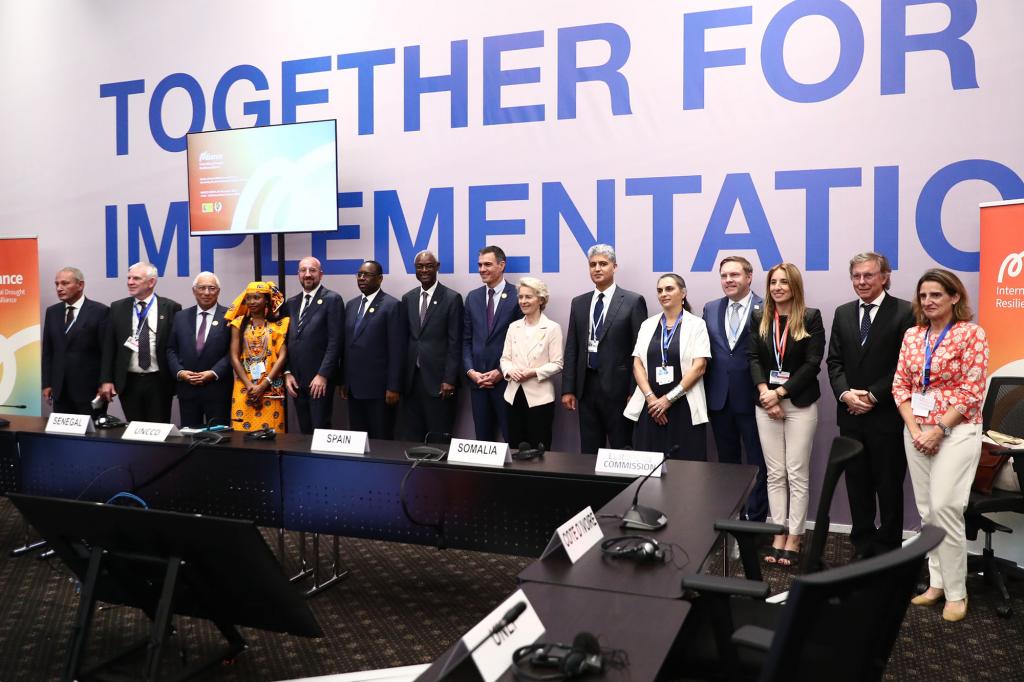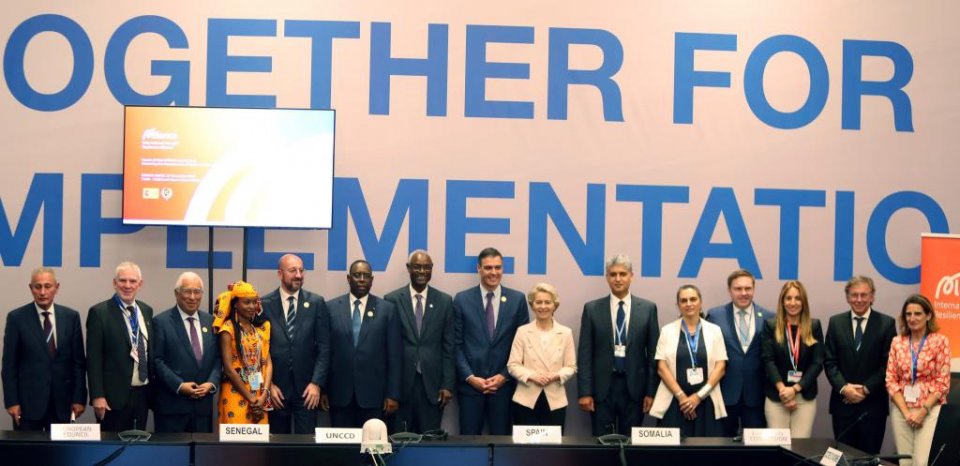At the initiative of Spain and Senegal, leaders from over 25 countries and 20 organisations launched the International Drought Resilience Alliance on Monday, to accelerate action and help countries to be better prepared for future droughts.
The launch took place on the sidelines of the UN Climate Conference (COP27), which is taking place in the sun-baked Egyptian resort of Sharm el-Sheikh.
In a joint declaration, Spanish Prime Minister Pedro Sánchez and the President of Senegal, Macky Sall, said: ‘We are only as resilient to climate change as our land is. Building resilience to drought disasters is the way to secure the gains we make on each sustainable development goal, particularly for the most vulnerable people. The mission of the alliance is to give political impetus to make the land’s resilience to drought and climate change a reality by 2030.’
Droughts are hitting more often and harder than before, up nearly by a third since 2000. Climate change is expected to cause more severe droughts in the future. Recent droughts in Australia, Europe, western United States, Chile, the Horn and Southern Africa, show that no country or region is immune to their impacts, which run into billions of dollars each year, not to mention human suffering. ALSO READ: Drought in Spain and across Europe could be the ‘worst in 500 years’.
The alliance will be bolstered by new political commitments, including a €5 million seed fund announced by Spain, to support the work of the alliance and catalyse a process to mobilise more resources for this agenda, and a commitment made by the President of Kenya William Ruto to plant 5 billion trees in the next 5 years, and 10 billion trees in 10 years.
The alliance calls on leaders to make drought resilience a priority in national development and cooperation, including deepening the engagement of stakeholders, such as the private sector, in work on drought resilience.
Among the key objectives of the alliance is promoting the consolidation of regional initiatives to fast-track sharing of innovation, technology transfer and mobilisation of resources.
Droughts have become 29% more frequent across the globe since 2000, as warming temperatures exacebate the influence of forest degradation and poor land management in drying out previously temperate regions, the UN agency said.
Climate scientists say droughts will become more severe and frequent in the coming years. They will also last longer as global warming disrupts weather patterns.
Meza said no country was immune to drought and the people worst affected ultimately cannot produce food, electricity or trade as rivers dry up preventing transportation.
ALSO READ: Unseasonal warm weather continues, as drought forces shutdown of power plant.
Today we launched the International #Drought Resilience Alliance with @UNBiodiversity @FAO @UNOCHA @WMO @UNDRR @UNDP @UNFCCC @theGEF @theGCF @ADB_HQ @EBRD @the_IDB @IFAD @AFPAT_ @GWPnews @IUCN @OSS_comms @nature_org @WWF @UfMSecretariat 🙌
— UN Land and Drought (@UNCCD) November 7, 2022
🚀 https://t.co/pqkyPrriQH #UNited4Land pic.twitter.com/jiDrHfH1UA

Sign up for the FREE Weekly Newsletter from Spain in English.
Please support Spain in English with a donation.
Click here to get your business activity or services listed on our DIRECTORY.
Click here for further details on how to ADVERTISE with us.


